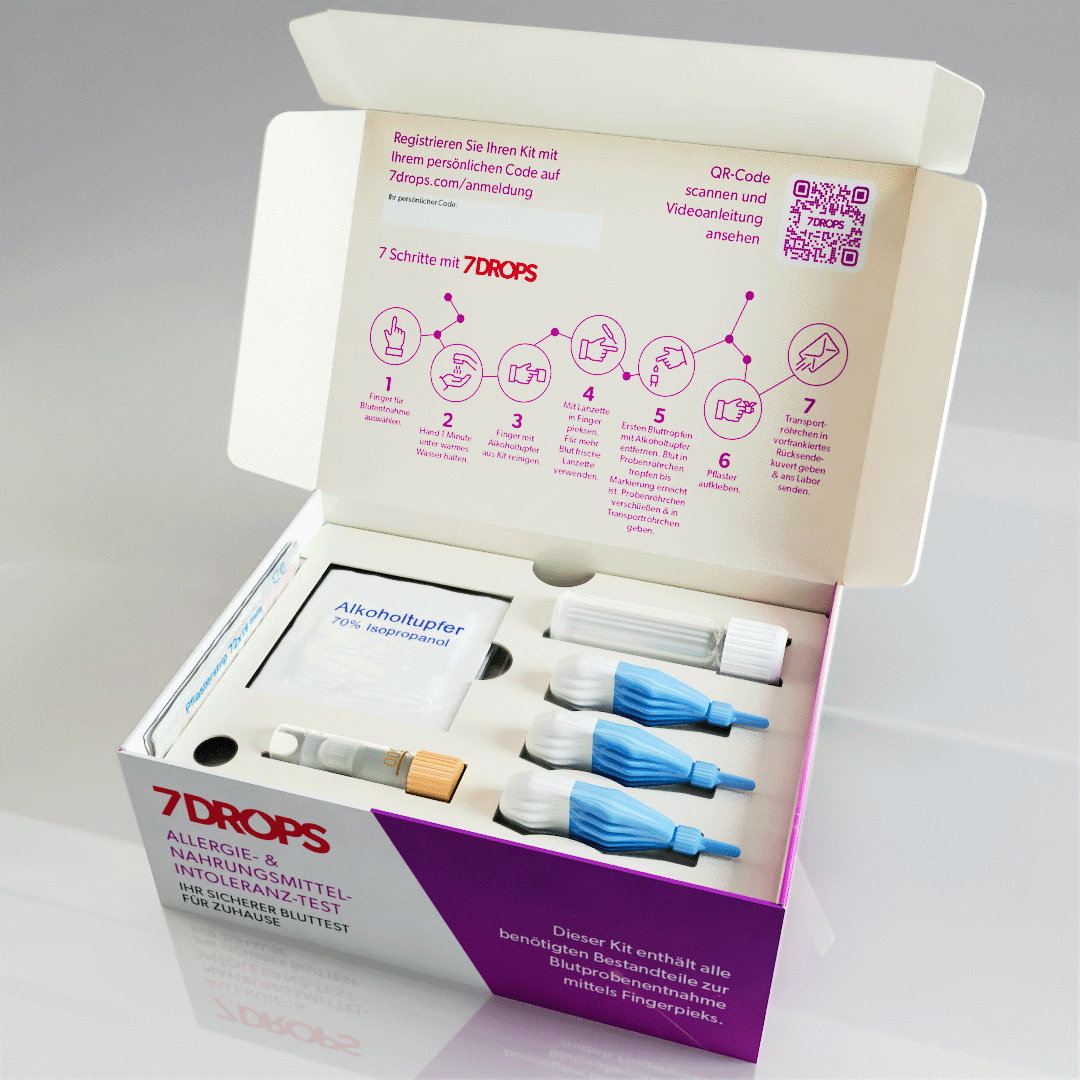Anaphylaxis: symptoms, causes & therapy
Anaphylaxis is a severe allergic reaction that can lead to a potentially fatal condition known as the anaphylactic shock.
Allergy symptoms can range from mild to severe. While some milder symptoms such as sneezing, itchy, watery eyes, and a stuffy or blocked nose can be treated quickly with the right medication, severe allergic reactions require immediate medical attention, otherwise they can end fatally.
Anaphylaxis is a severe allergic reaction that can lead to a potentially fatal condition known as the anaphylactic shock.
Causes of anaphylaxis
Like all allergic reactions, anaphylaxis is caused by the immune system defending the body from a foreign substance it deems harmful. Therefore, every substance that can cause an allergic reaction is called an allergen. Depending on the person, even minimal exposure or contact with the allergen will cause a severe reaction.
Most commonly, anaphylaxis is caused by an allergy against certain drugs, food groups or insect venom.
Statistics and risk factors
A 2017 study estimates that between 1.6 percent and 5.1 percent of US citizens have experienced anaphylaxis; however, a fatal outcome is rare.
Even for patients with a diagnosed insect venom, drug or food allergy, anaphylaxis has less than a 1 percent total mortality risk. In other words: only 1 percent of hospitalizations due to anaphylactic shock end in death.
Drug allergy


For patients with drug allergy, older age and cardiovascular diseases are a risk factor for anaphylaxis. Most commonly, a severe allergic reaction is triggered through antibiotics, general anesthetic agents, and radiocontrast injections.
Food allergy
For patients with food allergy, anaphylaxis most commonly occurs in their twenties or thirties. Common triggers are seafood and nuts. For children, milk is another common trigger. Research has determined a delay in epinephrine administration (= use of an EpiPen) as a risk factor for food allergy patients.
Insect venom allergy


Insect venom allergy is most prevalent in middle-aged white males suffering from cardiovascular disease. Despite varying in region, most insect stings in the US come from wasps, yellow jackets, hornets, honeybees, and fire ants.
Symptoms of anaphylaxis
What exactly happens to the body during anaphylaxis? In the case of a severe allergic reaction, the immune system produces large amounts of histamine. Histamine is a signaling molecule that triggers an inflammatory response in the body.
As opposed to mild allergic symptoms, which are generally confined to a certain region of the body (e.g., eyes or throat), anaphylaxis is a condition targeting several regions of the body at once.
From head to toe, these symptoms can be part of an anaphylactic episode and occur simultaneously:
- Dizziness, loss of consciousness
- Anxiety shock
- Eye swelling
- Itchy mouth, cough, swollen lips, hoarse voice, nasal congestion
- Tight, itchy throat
- Shortness of breath, wheezing, difficulty breathing
- Sudden drop of blood pressure, poor circulation, low pulse
- Chest pain
- Stomach pain, cramps, nausea, vomiting, diarrhea
- Swelling in the hands, feet, and genitals
- Itchy skin, hives, redness, pale blue skin
The combination of severe breathing difficulties and a sudden drop in blood pressure can lead to shock, which has the potential to be fatal if it is not treated as soon as possible.
Severe allergic reactions usually happen immediately after exposure to/contact with the allergen, or within a few hours of exposure/contact. Very rarely, it happens days later.
What to do in case of anaphylaxis
Patients suffering from anaphylaxis require immediate medical attention. Severe allergic reactions are treated with epinephrine, which is a form of adrenaline. Previously diagnosed patients will often carry an injector (EpiPen) providing a dose of epinephrine.
5 first aid steps for anaphylaxis include:
- Remove allergen (if possible) and call emergency assistance.
- Loosen any constrictive clothing and keep patient cool.
- If the patient feels faint, get them to sit, recline or lie flat.
- If they carry emergency medication (EpiPen), help them to administer.
- Stay calm and reassure patient until emergency assistance arrives.
Most patients react well to epinephrine, and their symptoms will start to subside almost immediately after administration. In some cases, symptoms return after they initially subside. For this reason, experts suggest for patients to remain under medical observation for 24 hours.
Prevention of anaphylaxis
As allergic reactions are unpredictable, taking preventative measures is not easy. If a patient has any known allergens that triggered an allergic reaction before, it is crucial to avoid those allergens as best as possible.
Since allergen avoidance is not always possible, patients may need to always carry medication (such as the EpiPen).
Patients (or parents of patients) with a history of severe allergic reactions should inform family, close friends, and caretakers about their triggers to help them avoid allergen exposure as well as assist them in case of emergency.
Sources: acaai.org, jacionline.org, ncbi.nlm.nih.gov, medicalnewstoday.com


Test your allergies
- 295 allergy triggers covered
- Personalised recommendations
- Learn about cross-allergies and more


7 natural allergy remedies to try


Why allergies make you tired



